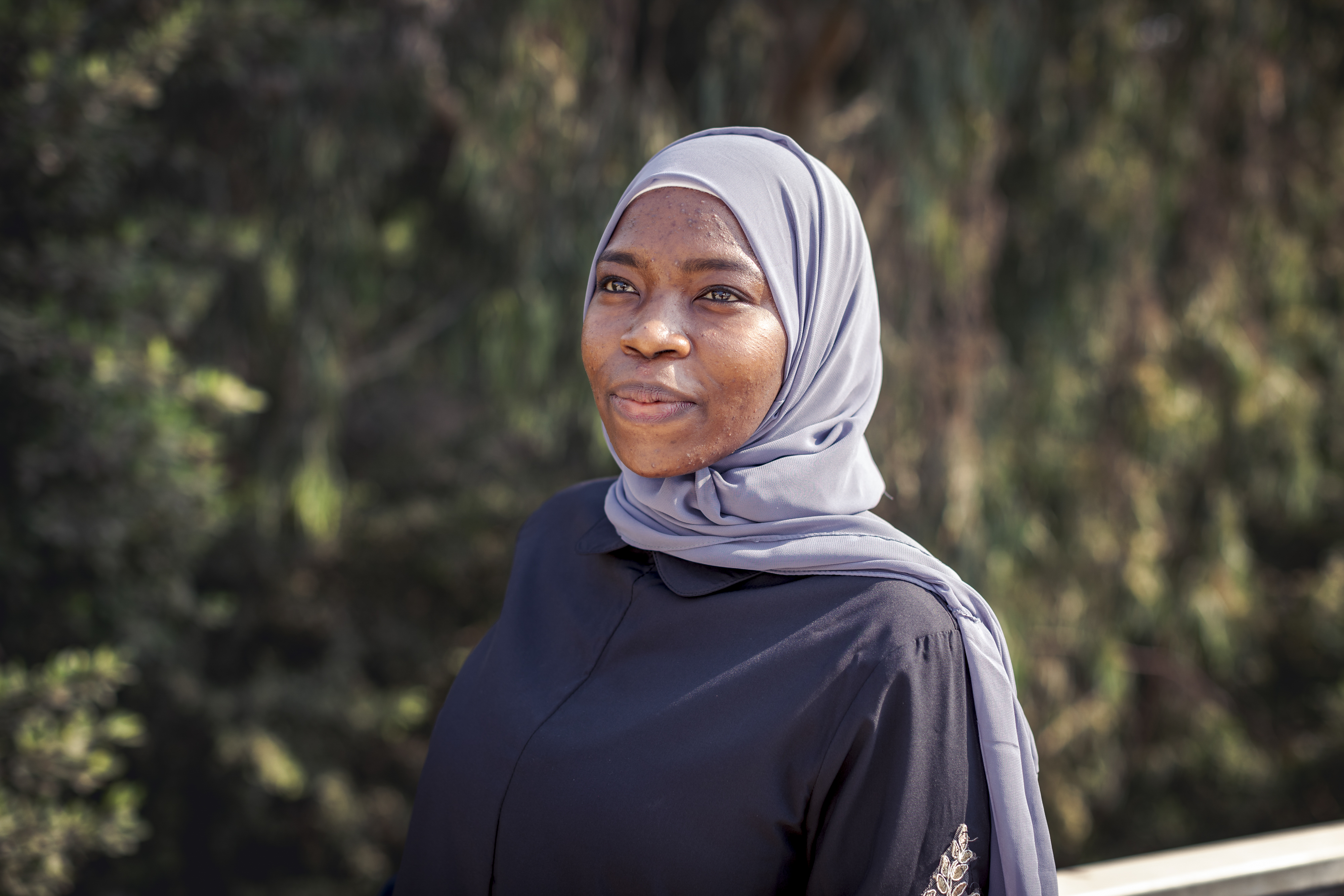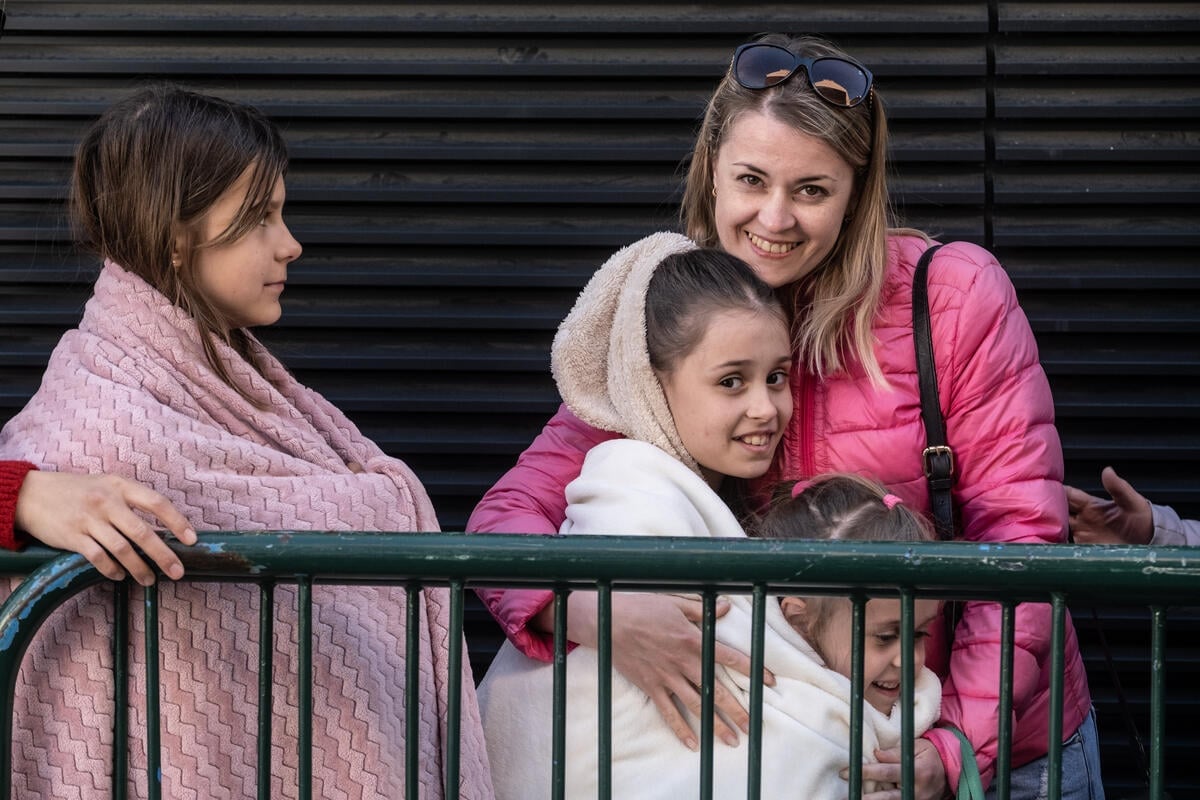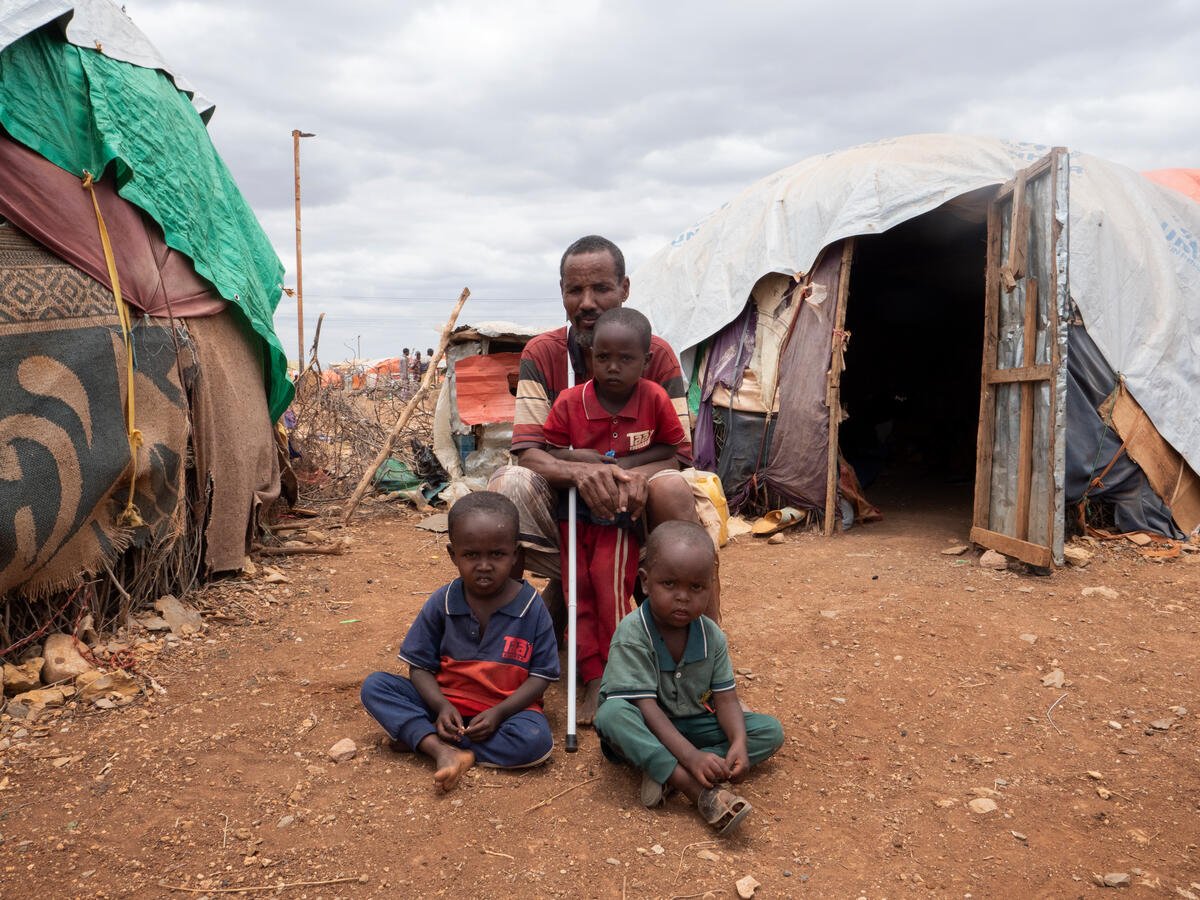Trio helps fellow newcomers from Middle East cope with life in Vienna

Trio helps fellow newcomers from Middle East cope with life in Vienna
Thirty children who would otherwise have been sitting at home for the holidays are now able to benefit from a summer school in Vienna run by three volunteers from Syria who are committed to helping fellow refugees.
“Who will help us if we do not help ourselves?” asks Maan Abu Ghazaleh, 38, a Palestinian raised in Syria. He and his Syrian wife Kholoud Al Englizi, 36, and friend Hani Al Khatib, 30, have set up a non-profit organization called “Die Brücke des Friedens” (The Peace Bridge).
The children, enjoying “fun learning” at a community centre in Vienna’s 10th district, have gone off to classes in German, English and maths, so the organizers can take a break. Over tea, they reflect on how it started, after they arrived in Austria in 2014.
They had fled the war in Syria, a little ahead of all the refugees who reached Europe in 2015. Back in Damascus, Maan worked in a bank, Kholoud taught English and Hani studied electrical engineering. Maan and Kholoud got to know Hani in Austria, where all three are now recognized as refugees.
“We started holding meetings every three months, just social events.”
Their volunteering began when they saw fellow refugees arriving in large numbers at Vienna’s main railway station. Maan and Kholoud were living in Lilienfeld in Lower Austria at the time.
“Every day, we travelled in to help people at the station,” says Kholoud. “We translated for them. If someone needed a doctor, for example, we searched and found an address.”
They already knew Hani on Facebook. They caught up with him at the station, where he was also volunteering. A virtual friendship became a real one and they began to see their social organization could become a reality too.
Scattered around Vienna, the refugees needed to talk about their experiences. Many had been through the same traumas of loss in the war and struggles on the road to Europe.
“People were isolated,” says Kholoud. “We started holding meetings every three months, just social events where they could speak their own language, talk if maybe they were depressed. We held these events in Arab cafes and it was ‘bring your own food and drink’.”
The three friends knew refugees needed to learn the language to integrate but classes were not always available, or free. With an intermediate level of German themselves, they gave elementary lessons to fellow refugees with little or no German. They set up a "Sprachcafe" (chat café) with Austrians and refugees from various countries, not only Syria.
“Some refugees didn’t even know Latin letters. We were able to help with basic literacy,” says Kholoud, who has taken a teacher training course in Vienna and hopes eventually to resume her teaching career.
Die Brücke des Friedens, formally set up in 2017, is self-financing, although the Vienna city government helps by allowing them to use venues rent-free. They raise money by, among other activities, holding food bazaars.
“At one bazaar,” says Kholoud, “200 people signed up on Facebook but 500 turned up. They were queuing round the hall.”
The three organizers are adamant they want to help themselves and others, not take handouts or charity. During the Austrian presidential election campaign in 2016, when some media were negative towards refugees, they paid to have 10,000 flyers printed and distributed. The leaflets thanked Austria for receiving them and assured the public they had not come to be a burden on society.
“Tolerance is when you see the colours between black and white.”
The idea for the summer school emerged when the winter language exchanges were nearing an end. Advertised on Facebook, the school would be open for all children -- not only Syrians, and not only refugees -- although mainly Syrian refugee families applied.
“Parents told us they would have problems with their kids, sitting at home all through the holidays with nothing to do except to watch TV,” says Kholoud.
The summer school is held in a community centre belonging to Wohnpartner, an organization that supports residents in Vienna’s municipal housing complexes. “Tolerance is when you see the colours between black and white,” says graffiti on the wall outside.
Inside, in one room, small children encouraged by Austrian volunteers call out German words beginning with B and P. In another room, teenage Syrian girls with relatively advanced English give junior girls a conversation class.
Elsewhere, Hani is teaching some of the dozen or so volunteer teachers the “chi chi wa” song and dance. Soon the whole school will be doing it. Outside, children are playing football. Plates of fries are laid out on a table for lunch.
It is fun and educational, a win-win situation for all taking part.
“It is very interesting to watch the Syrians,” says Austrian social worker Franz Swischaj. “They have some different methods and we can learn from them.”
Maan looks on proudly. In Syria, he received a degree in business management and worked in a bank. For 14 months in Vienna, he made sandwiches for a fast food chain. Now he sees a more rewarding future.
“I have started to be involved in social work,” he says, “and I find I like it very much.”














